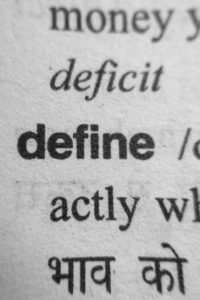
IMPORTANT: All hyperlinks in this article with an asterisk (*) will take the reader away from this website to either our Williams Law Group Blog* or an official governmental website. This article is for informational purposes only and is based upon my point of view. Due to the rapidly changing nature of the law, we make no warranty or guarantee concerning the accuracy or reliability of the content in this article. No content on this site, regardless of date, should ever be used as a substitute for direct legal advice from your attorney. Please review our Disclaimer|Terms of Use|Privacy Policy before proceeding.
HOW CAN AN EMPLOYMENT-LAW ATTORNEY HELP ME?
answer:
In today’s workforce, instances of workplace discrimination continue to cast shadows over the professional lives of numerous employees. Discrimination, spanning various factors such as age, citizenship or immigration status, creed/religion, disability, gender, national origin, opposition to a discriminatory practice, race, and sexual orientation, presents a formidable challenge to workplace equality. For individuals grappling with discrimination in their professional environments, seeking legal counsel emerges as a pivotal recourse. Here’s why consulting with an attorney holds paramount importance for employees encountering discrimination in the workplace:
1. Understanding Legal Rights
When faced with workplace discrimination, comprehending one’s legal rights becomes imperative. Employment laws exhibit nuances and intricacies, often varying from state to state. Consulting with an employment law attorney facilitates a comprehensive understanding of applicable legal frameworks, such as the Washington Law Against Discrimination*, Title VII of the Civil Rights Act, the Americans with Disabilities Act (ADA), or the Age Discrimination in Employment Act (ADEA).
2. Guidance Through the Process
The journey of initiating a discrimination claim can prove arduous, particularly for individuals unversed in legal proceedings. An attorney proficient in employment law extends invaluable guidance and support across every phase of the process. This encompasses assistance in evidence collection, completion of necessary paperwork, and adept representation during negotiations or court proceedings. Through their expertise, attorneys ensure the protection of clients’ rights and enhance the prospects of securing a favorable outcome.
3. Preservation of Evidence
Evidentiary support serves as the backbone of discrimination claims, pivotal in substantiating allegations. However, the task of gathering and preserving evidence presents challenges, particularly for employees still employed by the discriminating entity. Attorneys adept in employment law offer strategic counsel on evidence collection, encompassing documentation such as emails, performance evaluations, and witness statements. Moreover, they safeguard against potential retaliatory actions from the employer, crucial in bolstering the strength of the case.
4. Advocacy and Negotiation
Many discrimination cases witness resolution through negotiation or mediation, circumventing the need for protracted litigation. Here, the role of an attorney as an advocate assumes significance, advocating for clients’ interests and facilitating constructive dialogue with the opposing party. By elucidating available options and potential outcomes, attorneys empower clients to make informed decisions conducive to their objectives.
5. Pursuit of Compensation
Employees subjected to workplace discrimination may be entitled to compensation for various damages incurred, ranging from lost wages to emotional distress. Attorneys proficient in employment law conduct a thorough evaluation of clients’ claims, considering factors such as the severity of discrimination and its impact on professional trajectories. Subsequently, they navigate the legal terrain to secure rightful compensation through formal channels.
6. Holding Employers Accountable
Beyond seeking redress for individual grievances, pursuing legal action against discriminatory practices holds broader implications. By holding employers accountable for their actions, employees contribute to the collective endeavor of fostering equitable and inclusive work environments. Such actions serve as deterrents against future instances of discrimination, fostering a culture of accountability and respect within organizations.
CONCLUSION
In essence, the decision to seek legal counsel holds profound significance for employees grappling with workplace discrimination. Attorneys practicing employment law serve as steadfast allies, offering guidance, advocacy, and strategic representation. By harnessing legal avenues, employees not only assert their rights but also propel the ongoing fight for workplace equality and justice.
NEED HELP?
If you need legal assistance, consider contacting an experienced attorney to discuss your case. This article is not offered as legal advice and will not establish an attorney-client relationship with Law Office of Gregory A. Williams, or the author of this article; please refer to our Disclaimer | Terms of Use | Privacy Policy for more information.









